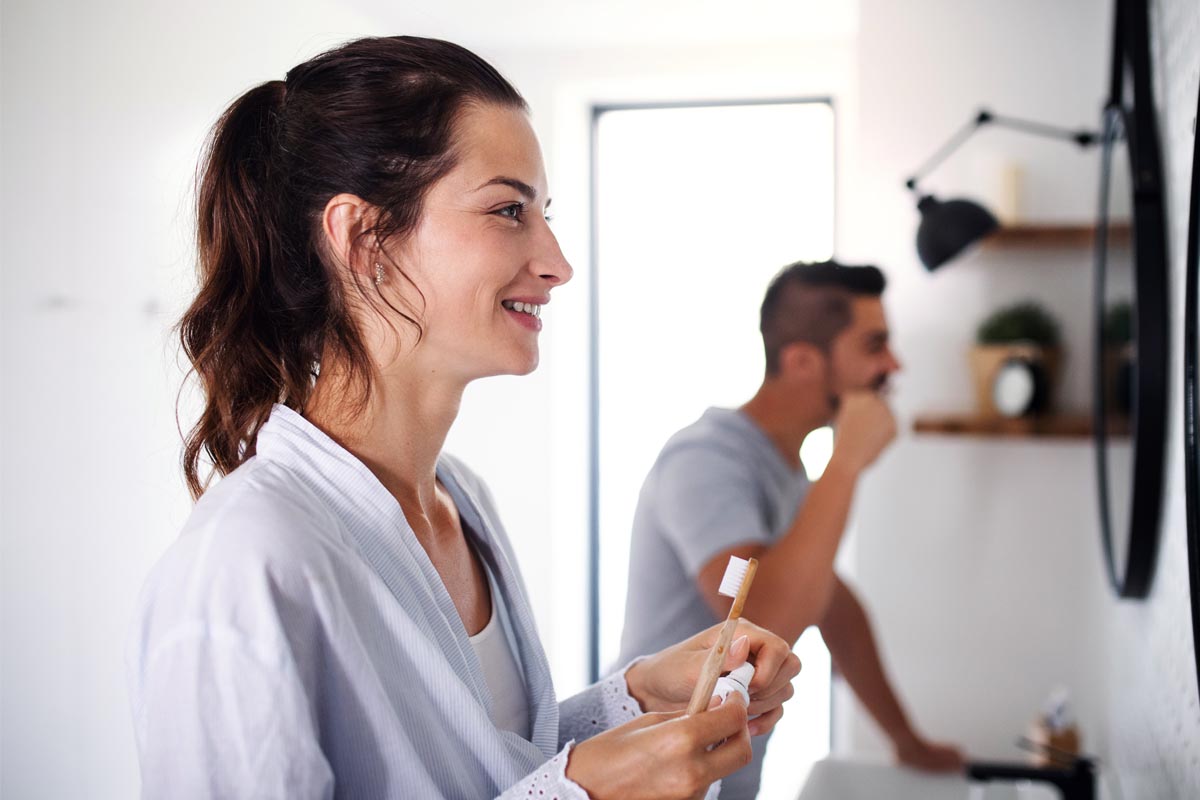
Dental and oral health brands would love us to believe that our teeth can glisten as brightly as the smiles of their impossibly attractive models, if only we use their products. But when it comes to getting the best clean for our teeth, does the toothbrush and toothpaste you choose actually make a difference?
The answer is — spoiler alert — yes and no. Specialist Paediatric Dentist, Dr Rebecca Williams explains why.
A toothbrush is a toothbrush is a toothbrush… almost
Nice try toothbrush companies, but it turns out that the brand or type of toothbrush you choose doesn’t really matter when it comes to providing an effective clean. They all work. It’s more about how—and how often—you use them.
This means that despite popular belief, an electric toothbrush is no more effective at cleaning your teeth than its humble, manual cousin.
“You can get the same result from a manual as you can an electric toothbrush, as long as you’re using it correctly and for the right amount of time,” Dr Williams says.
You may be thinking, ‘but wait, why would I spend so much more on an electric toothbrush when I can get my teeth as clean without one?’
The main purpose of an electric toothbrush is to make it a whole lot easier to brush your teeth properly. “It does half the work for you, so you can focus on the position of the bristles rather than having to focus on the action as well.” In other words, if you’re someone who doesn’t love a good tooth-brushing, spending the money on something that makes it more enjoyable might be worth it.
As for the fancy grips, bright colours and fun designs; Dr Williams says, “they obviously don’t make much difference to the functionality of the toothbrush, but potentially aid in the enthusiasm for brushing.”
The one feature that does actually matter however is bristle firmness. Dr Williams says dentists will generally recommend soft bristles. “Hard bristles can be more abrasive so you can actually physically wear away your teeth, particularly if you’re scrubbing quite hard.”
Moral of the story, whatever soft bristled toothbrush gets you to a more effective clean is worth buying.
It’s all about the toothpaste
When it comes to toothpaste, Dr Williams says it does matter what you use.
Whitening and charcoal toothpastes should be used with caution, especially for those with sensitive teeth. “They can be quite abrasive and increases the risk of wearing away your teeth while you’re brushing,” she says.
Dr Williams adds that, “the most important part about toothpaste is the fluoride. We recommend fluoride toothpaste because it is proven to reduce the risk of decay compared to a non-fluoride toothpaste.”
Fluoride is a naturally occurring mineral found in soil, water and some foods. It can help prevent tooth decay, which is why it's added to toothpastes, and to most of Australia’s water supply1. Toothpastes are made with varying amounts of fluoride to suit different ages, so make sure to ask your dentist how much is right for you and your family.
What about floss?
As far as dental products are concerned, floss should not be ignored.
“Flossing is actually as important as brushing because almost half of the surface area of your teeth is in between them where the bristles can’t reach,” Dr Williams explains.
Waxed or unwaxed floss doesn’t matter, and you only need to floss once a day. “It’s really just the mechanical action that’s important.”
Sources:
1 Australian Government Department of Health - Fluoridation of drinking water (2020)
Disclaimer
This article contains general information only and does not take into account the health, personal situation or needs of any person. In conjunction with
your GP or treating health care professional, please consider whether the information is suitable for you and your personal circumstances.